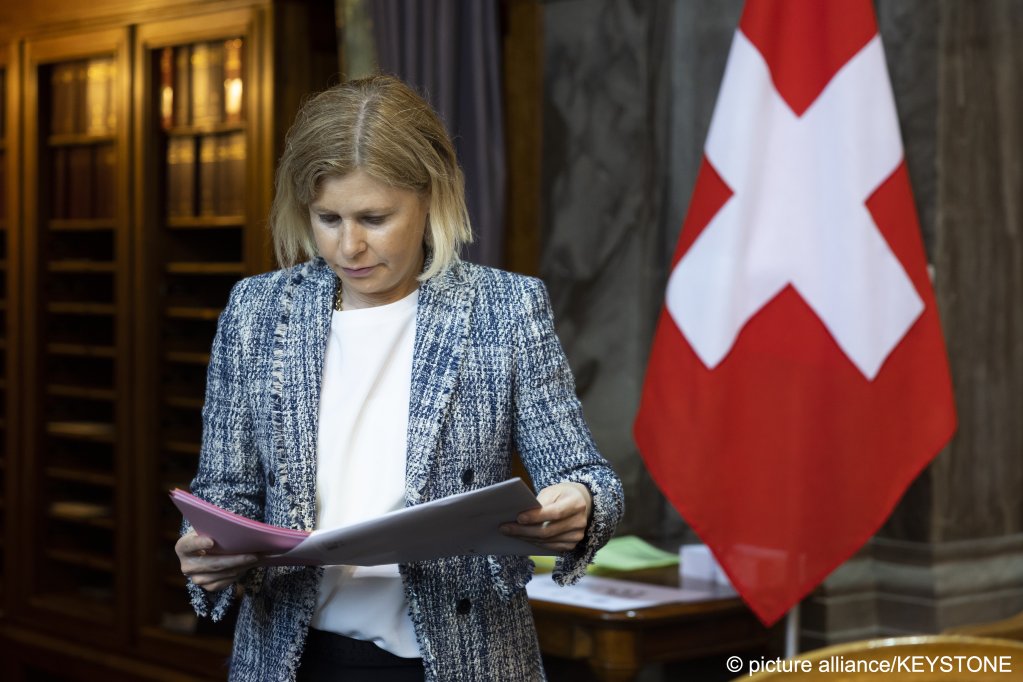The fate of around 260 rejected Eritrean asylum seekers has become a hot topic in Switzerland. Many Swiss politicians want to see the migrants deported to Eritrea, but the East African nation refuses to take them back.
Of an estimated 40,000 Eritrean nationals in Switzerland, a small number of rejected asylum applicants from the country has become the focus of attention.
For more than a year, many Swiss politicians have been calling for the group, numbering about 260 people, to be deported. This has been impossible so far because Eritrea will not admit them.
In much of the Swiss media and in public debates, the focus on Eritrean migrants is usually negative: they are accused of being poorly integrated, failing to speak the language and relying on social welfare.
Eduard Gnesa, the former director of the Federal Office for Migration (now known as the State Secretariat for Migration or SEM), says there are many reasons for failed integration, from poor levels of education to mistrust of officials, patriarchal family structures and psychological scars from experiences in the military or being forced to flee the country, which he likens to the dictatorship of North Korea.
"The way integration is going here is closely tied to the situation in Eritrea, which is 'disastrous'," Gnesa told the Neue Zürcher Zeitung last November.
"The way integration is going here is closely tied to the situation in Eritrea, which is 'disastrous'," Gnesa told the Neue Zürcher Zeitung last November.
Hand in hand with growing public hostility to Eritreans – including well-integrated ones – in Switzerland, there is mounting political pressure to deport those whose asylum applications have been refused.
Veronica Almedom, an Eritrean activist in Switzerland, announced a year ago that she intended to stand for the Greens. The news attracted racist comments on social media. "Of course, she could actively campaign for a readmission agreement with Eritrea. So that deportations can finally begin," said one commentator on X.
Renewed pressure for returns agreement
This week, the upper house of the Swiss parliament, the Council of States, passed a motion by a member of the right-wing populist Swiss People’s Party calling once again for a returns agreement with Eritrea.
The motion by Esther Friedli came after Switzerland’s top migration official, Christine Schraner Burgener, stated in June that the country was willing to reach an agreement and that an official would be making regular visits to Asmara to conduct negotiations, the Neue Zürcher Zeitung reported on Thursday (August 22).
 Esther Friedli, pictured here on June 16, 2023, in Bern, is a member of the Swiss People's Party. She believes in restricting immigration | Photo: Peter Klaunzer / picture alliance
Esther Friedli, pictured here on June 16, 2023, in Bern, is a member of the Swiss People's Party. She believes in restricting immigration | Photo: Peter Klaunzer / picture allianceMeanwhile, other proposals continue to be put forward to enable Switzerland to expel the failed Eritrean asylum applicants. In June, parliament gave the green light to allowing rejected asylum seekers to be returned via a third country, which would be responsible for obtaining the documentation needed for their ultimate repatriation to Eritrea. This has been tried before, in 2003, when a deal was struck with Senegal. That agreement never came into effect.
Switzerland’s justice minister Beat Jans has said that a 'transit agreement' such as the one reached with Senegal will not solve the problem, since Eritrea would also refuse to take back its citizens from a third country.
Rwanda-style plan
Swiss migration authorities are also looking at the possibility of outsourcing asylum procedures to third countries, in a similar way to the UK-Rwanda plan.
In June, Schraner Burgener called the EU’s plan to carry out reception procedures for asylum seekers from countries with low protection rates at the bloc’s external borders a "very good" approach, the news site swissinfo reported.
But Schraner Burgener also noted that a Rwanda-style plan would mean giving up sovereignty and control over asylum decisions.
According to Cesla Amarelle, a professor of migration law at the University of Neuchâtel, such a scheme would also pose significant legal challenges. Speaking to swissinfo in May, Amarelle said: "If this plan were to be implemented – which seems unrealistic – Switzerland risks being condemned by the European Court of Human Rights."






